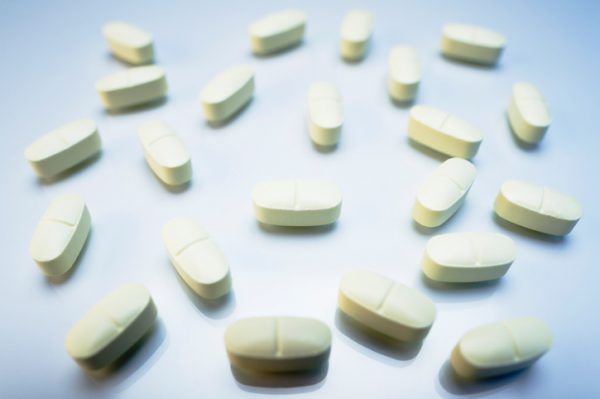
For all of the benefit that biologic drugs provide as treatments for chronic conditions, these medications also require chronic dosing by injection or infusion. Biotech companies have been pursuing ways to hit the same targets as biologics, but with drugs that can be dosed orally. Orbis Medicines aims to do so with peptide-based therapies and it’s now out of stealth to advance its technology.
Copenhagen-based Orbis launched Thursday backed by €26 million (about $28 million) in seed financing led by Novo Holdings and Forbion.

The Power of One: Redefining Healthcare with an AI-Driven Unified Platform
In a landscape where complexity has long been the norm, the power of one lies not just in unification, but in intelligence and automation.
Peptides are chains of amino acids. They can bind to targets that are challenging for small molecules, making them attractive for drug research, said Morten Døssing, partner at Novo Holdings and chair of Orbis’s board of directors. But the hurdle for developing peptides in oral formulations is their poor oral bioavailability. The gut is a harsh environment that degrades proteins and peptides. Even if a peptide survives the digestive ecosystem, its size—larger than a small molecule—makes it difficult to pass through intestinal walls. Consequently, too little of the peptide makes into the bloodstream to offer a therapeutic effect.
Orbis’s peptide drugs are macrocycles, compounds that take on a ring shape whose larger surface area gives the molecule versatility in binding to various targets. These compounds come from Orbis’s technology platform, which enables the design of macrocycles with desired properties, such as oral bioavailability and cellular permeability to address targets inside of cells.
Macrocyclic peptides have already reached the clinic in the hands of some big pharmaceutical companies. Merck is in late-stage clinical development with compound that inhibits the liver protein PCSK9 to treat an inherited form of high cholesterol. Johnson & Johnson has reached pivotal testing with an orally administered peptide for treating plaque psoriasis.
While acknowledging that the Merck and J&J candidates have advanced the field of oral peptides drug research, Døssing noted that they are the products of years of chemistry R&D. Compared to conventional methods that yield tens of compounds against a given target, Orbis’s technology can make as many as 100,000 compounds, and do so much faster, he said. The technology tests those compounds, leveraging machine learning-techniques to predict the next set of compounds to make. Døssing describes the technology as a highly automated chemical synthesis and screening platform. What would take months or even years with conventional methods can be done in weeks with the Orbis technology. He claims this platform can produce drug candidates better suited for oral delivery and cellular permeability.
“They are smaller, cell permeable, and we can make them at scale,” Døssing said. “We see us as being very different from other companies in this space.”
Orbis is based on research from its scientific co-founders, Christian Heinis and Sevan Habeshian, professors at the Swiss Federal Institute of Technology in Lausanne. Heinis is also a co-founder of Bicycle Therapeutics, a Cambridge, U.K-based company developing peptide-based drugs for cancer. Its drugs are comprised of peptides arranged in a circular shape resembling a wheel, which the company calls Bicycles. While the company is making progress, Døssing said Bicycles are still relatively large in size, continuing to pose challenges for oral delivery.
Heinis has continued his research with macrocycles, leading to compounds that are smaller and better suited for oral dosing. Orbis was founded in 2021 by the Seeds Investment team of Novo Holdings, based on the scientist’s research. João Ribas, principal of the Seeds Investment team and Orbis’s interim chief business officer, said that as investors, the firm has looked at macrocycles for some time. Heinis’s work solves challenging problems for developing macrocycle drugs, he said.
Late last year, Nature Chemical Biology published a paper describing the application of the Orbis technology to the disease target thrombin, an enzyme involved in clotting. Scientists were able to synthesize 8,448 cyclic peptides, proving it can deliver orally available peptides against a given target.
Orbis is keeping mum on specific disease targets for now. But speaking generally, Døssing said Orbis is looking to address validated targets currently addressed by antibody drugs. In addition to the inconvenient dosing by subcutaneous injection or intravenous infusion, these medicines also require a cold supply chain.
“Having an antibody-based therapy, subcu or IV dosing is not what the patient wants,” Døssing said. “If you can convert an antibody therapy to an oral macrocycle format, it’s a great opportunity.”
Orbis will use the financing to continue to develop its macrocycle technology, called nGen, and building its pipeline of drug candidates, called nCycles. Døssing declined to offer any timelines for bringing an nCycle into the clinic. The startup’s launch comes as the macrocycle field heats up. Merck is pursuing more macrocyclic drugs under a recently announced collaboration with Unnatural Products focused on an undisclosed oncology target. Meanwhile, Astellas Pharma is pursuing macrocyclic peptide drugs for cancer under a partnership with PeptiDream, which has a peptide discovery platform technology.
Photo: Getty Images








